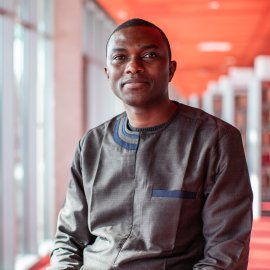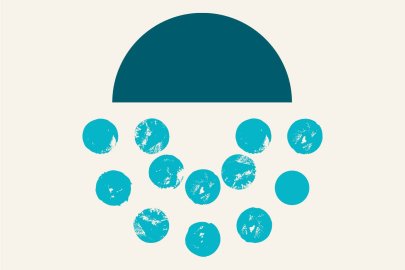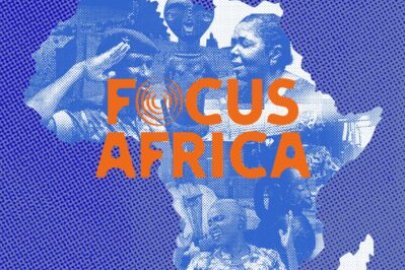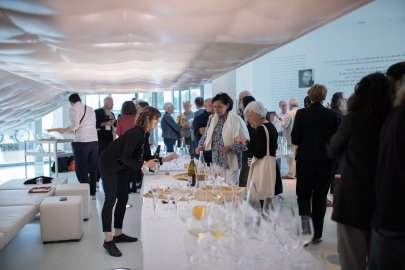
Octobre 2024 à juin 2025
José Donadoni Manga Kalniga is a Senior Researcher and head of the Department of Social Studies at the National Center for Education, a research institute under the technical supervision of the Ministry of Scientific Research and Innovation (Cameroon). He holds a PhD in Sociology from the University of Maroua (Cameroon). His current research primarily focuses on issues of authority, memory, and academic freedoms in Cameroon.
He has also specialized in the study of gender, urbanity, and decentralization. This specialization allows him to offer expertise in the field of social engineering. In this capacity, he has produced about ten urban planning documents for municipalities and conducted several social impact studies for major projects in Cameroon.
Since the 2022/2023 academic year, he has been teaching within the doctoral training unit "Sciences and Techniques of Physical and Sports Activities (STAPS) and Youth and Leisure (JL)" at the National Institute of Youth and Sports of Cameroon.
Lamidalisme as a Category of Analysis Anchored in the Historicity of African Societies: For a Critical (Re)Reading of Violations of Freedom of Thought in the Academic Environment in Cameroon
José Donaldoni Manga Kalniga draws a parallel between lamidality, a feudal governance system in Cameroon's history, and the contemporary Cameroonian university milieu, revealing striking similarities.
This project supports the idea that it is possible to use lamidalisme as a category of analysis anchored in the historicity of African societies to provide a critical reading of the attacks on generative capacity and epistemological fertility in the African context. The observation is that African knowledge and knowledge about Africa are, for the most part, activist and weakly grounded in the analytical materials anchored in African societies. Drawing inspiration from the lamidat, a feudal, total institution and product of the historicity of northern Cameroon, this project shows that the scientific space constitutes a framework for observing the interdependence and circulation of degrading constraints on young and accomplished researchers. Access to scientific communities, career advancement, and obtaining distinctions follow the logics of reverence, allegiance, and subjection. As it functions, the scientific field becomes a repressive space for freedom of thought and captive to the researchers’ ability to generate epistemic knowledge.
MANGA KALNIGA, José Donadoni, (dir.), (Im)penser l’urbain au Cameroun, Paris : L’Harmattan, 2023, 468 p.
MANGA KALNIGA, José Donadoni, « Réformes territoriales au Nord-Cameroun. Le lamidat comme modalité de contrôle sur les communes », Cahiers d’Études Africaines, n°247, 2022, pp.
515-537.
MANGA KALNIGA, José Donadoni, « Rupture ou recomposition des variables d’accès à la résidence au Nord-Cameroun », Revue Internationale des Sciences Humaines et Sociales, n°10, 2022, pp. 19-40.
MANGA KALNIGA, José Donadoni, « Mode de production des élites féminines au Nord-Cameroun » in Revue Internationale des Francophonies [En ligne], 5|2019, publié le:14/06/2019. http://rifrancophonies.com/index.php?id=884.
MANGA KALNIGA, José Donadoni, « L’encadrement scientifique au Cameroun. Entre défaillances institutionnelles et déclinaison du métier universitaire » In Émulations, n°21, Bernard Fusulier, Nathan Gurnet et Farah Dubois-Shaik (coord.), Être jeunes chercheur-e-s aujourd’hui, Louvain, Presses Universitaires de Louvain, 2017, pp. 53-66.




